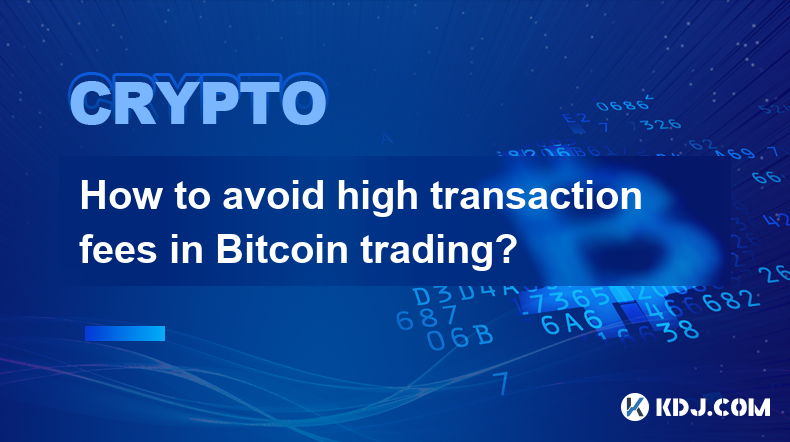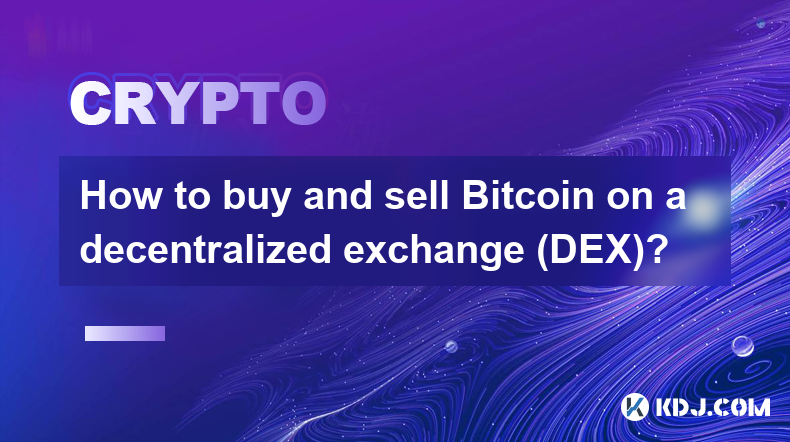-
 Bitcoin
Bitcoin $85,033.8535
1.17% -
 Ethereum
Ethereum $1,601.6239
2.40% -
 Tether USDt
Tether USDt $0.9998
-0.02% -
 XRP
XRP $2.0816
-0.36% -
 BNB
BNB $591.8032
1.50% -
 Solana
Solana $134.5402
4.40% -
 USDC
USDC $1.0000
0.00% -
 TRON
TRON $0.2495
-0.63% -
 Dogecoin
Dogecoin $0.1579
2.98% -
 Cardano
Cardano $0.6235
2.75% -
 UNUS SED LEO
UNUS SED LEO $9.0404
-3.92% -
 Chainlink
Chainlink $12.5761
3.19% -
 Avalanche
Avalanche $19.2826
2.38% -
 Toncoin
Toncoin $2.9759
3.44% -
 Stellar
Stellar $0.2404
2.04% -
 Shiba Inu
Shiba Inu $0.0...01190
2.15% -
 Sui
Sui $2.1421
2.84% -
 Hedera
Hedera $0.1636
4.43% -
 Bitcoin Cash
Bitcoin Cash $333.3231
4.53% -
 Polkadot
Polkadot $3.6531
3.10% -
 Litecoin
Litecoin $75.6935
1.57% -
 Hyperliquid
Hyperliquid $16.8002
7.83% -
 Dai
Dai $1.0002
0.01% -
 Bitget Token
Bitget Token $4.3605
1.13% -
 Ethena USDe
Ethena USDe $0.9992
-0.01% -
 Pi
Pi $0.6164
2.35% -
 Monero
Monero $216.8607
0.05% -
 Uniswap
Uniswap $5.2474
2.46% -
 Pepe
Pepe $0.0...07365
3.11% -
 OKB
OKB $50.7091
-1.30%
What are the functions of the private key and public key of Bitcoin addresses?
Bitcoin's security relies on private keys, which must be kept secret, and public keys, which can be shared freely for receiving payments.
Mar 27, 2025 at 03:28 am

Understanding Bitcoin's Cryptographic Keys
Bitcoin, at its core, relies on robust cryptography to ensure secure transactions. This security is underpinned by the interplay between private keys and public keys, which are integral to every Bitcoin address. Understanding their distinct functions is crucial for navigating the Bitcoin ecosystem safely and effectively.
The private key is essentially a secret number, typically a long string of characters. It's the sole means of authorizing Bitcoin transactions from a specific address. Losing your private key is equivalent to losing access to your Bitcoins; there's no recovery mechanism. Therefore, safeguarding your private key is paramount. It's crucial to store it securely, preferably offline and using multiple backups.
The public key, in contrast, is a derived value generated from the private key through cryptographic algorithms. It's a longer string of characters than the private key. Think of it as your Bitcoin address's identifier. You can share your public key freely; it doesn't compromise your funds. It's used to receive Bitcoin payments. Others can send Bitcoins to your public key, which is associated with your Bitcoin address.
How Private and Public Keys Work Together
The relationship between the private and public keys is fundamental to Bitcoin's security and functionality. The private key acts as the "proof of ownership" for the Bitcoins associated with the corresponding public key. When you want to spend your Bitcoins, you use your private key to sign a transaction. This signature, created using cryptographic techniques, proves you possess the authority to spend those Bitcoins.
This signature is then verified by the Bitcoin network using your public key. The network confirms that the signature is valid, meaning the transaction originates from the rightful owner (the holder of the corresponding private key). Only the holder of the private key can create a valid signature. This process ensures that only the legitimate owner can spend their Bitcoins.
The Role of Bitcoin Addresses
A Bitcoin address, often displayed as a string of alphanumeric characters, is derived from the public key. It serves as a user-friendly identifier for receiving payments. While the public key is technically used for receiving funds, the address is a shortened, more manageable version, making it easier for users to interact with the system. You share your Bitcoin address with others when you want them to send you Bitcoins. The address itself doesn't directly reveal your private key.
Your Bitcoin address is essentially a one-way function of your public key, meaning it's computationally infeasible to derive the public key, let alone the private key, from the address alone. This design protects your private key, even if your address is publicly known. It is therefore safe to share your Bitcoin address widely.
Security Implications of Private and Public Keys
The security of your Bitcoins hinges entirely on the security of your private key. Never share your private key with anyone, under any circumstances. Compromising your private key grants complete control of your Bitcoins to the attacker. They can then transfer your funds to their own wallets, leaving you with nothing.
Conversely, sharing your public key poses no security risk. It's akin to sharing your bank account number—it allows others to send you money but doesn't grant them access to your funds. You can safely publish your public key or Bitcoin address without compromising your security.
Generating Key Pairs
Bitcoin wallets automatically generate key pairs (a private key and its corresponding public key). These key pairs are generated using cryptographic algorithms, ensuring that each key is unique and secure. The process is typically done using strong random number generators, making it computationally infeasible to predict or guess the private key from the public key.
The private key is then stored securely in your wallet, while the public key (or its derived address) is used to receive payments. Different wallets employ various security measures to protect your private key, ranging from simple password protection to more sophisticated hardware security modules (HSMs). Choosing a reputable and secure wallet is crucial for protecting your Bitcoins.
Different Types of Bitcoin Wallets and Key Management
Various Bitcoin wallets handle private and public key management differently. Some wallets, like desktop wallets, offer greater control over your keys, while others, such as online wallets, handle key management for you. Understanding the key management approach of your chosen wallet is essential.
Hardware wallets, considered the most secure option, store your private keys offline on a dedicated device. This significantly reduces the risk of theft or loss compared to software wallets that store keys on a computer or mobile device, which are more vulnerable to malware and hacking.
- Hardware wallets: Offer the highest level of security by storing private keys offline.
- Software wallets: Store private keys on a computer or mobile device.
- Paper wallets: Print out your private and public keys for offline storage. (High risk of loss or damage)
- Online wallets: Third-party services manage your keys for you (Increased risk of theft or compromise).
Frequently Asked Questions
Q: What happens if I lose my private key?
A: If you lose your private key, you lose access to the Bitcoins associated with that key. There is no recovery mechanism. Therefore, securing your private key is of utmost importance.
Q: Can I share my public key?
A: Yes, you can safely share your public key or Bitcoin address. It's necessary for receiving Bitcoin payments. Sharing your public key doesn't compromise your private key or your funds.
Q: Is it safe to use online wallets?
A: Online wallets offer convenience but carry higher risks compared to hardware or software wallets. They store your private keys on their servers, making them vulnerable to hacking and theft.
Q: How are private keys generated?
A: Private keys are generated using strong cryptographic algorithms and random number generators, ensuring uniqueness and security. The process is usually handled automatically by your Bitcoin wallet.
Q: What is the difference between a public key and a Bitcoin address?
A: A public key is a cryptographic value derived from the private key. A Bitcoin address is a shortened, user-friendly representation of the public key, designed for ease of use in transactions.
Q: Can I recover my private key if I forget it?
A: No, there's no way to recover a lost private key. Therefore, securely backing up your private key is crucial. Consider using multiple backup methods and storing them in different, secure locations.
Q: How can I protect my private key?
A: Use strong passwords, enable two-factor authentication (2FA) where available, and store your private key offline, ideally using a hardware wallet. Avoid sharing your private key with anyone. Regularly back up your private key and keep those backups secure.
Disclaimer:info@kdj.com
The information provided is not trading advice. kdj.com does not assume any responsibility for any investments made based on the information provided in this article. Cryptocurrencies are highly volatile and it is highly recommended that you invest with caution after thorough research!
If you believe that the content used on this website infringes your copyright, please contact us immediately (info@kdj.com) and we will delete it promptly.
- Babylon Labs and Sui Expand Cooperation by Integrating BTC Staking Solution
- 2025-04-18 03:15:14
- XRP (XLM) Overtakes Ethereum (ETH) in Performance for the First Time in Five Months
- 2025-04-18 03:15:14
- Chainlink (LINK) Price Trapped in Multi-Week Falling Channel
- 2025-04-18 03:15:13
- The 'Base is for everyone' meme coin was briefly listed on Coinbase's Base network and got to a market cap of $17 million in its short-lived time.
- 2025-04-18 03:15:13
- Shiba Inu (SHIB) Price Prediction: Will SHIB Boom in 2025?
- 2025-04-18 03:10:19
- Solaxy (SOLX) Presale Raises Over $30 Million Ahead of Network Launch
- 2025-04-18 03:10:19
Related knowledge

How to avoid high transaction fees in Bitcoin trading?
Apr 18,2025 at 12:14am
How to Avoid High Transaction Fees in Bitcoin Trading? Bitcoin trading can be exciting, but high transaction fees can quickly erode your profits. Understanding how to minimize these fees is crucial for any trader looking to maximize their returns. In this article, we will explore various strategies and techniques to help you avoid high transaction fees ...

How to see the depth chart of Bitcoin trading?
Apr 17,2025 at 08:36am
Understanding the depth chart of Bitcoin trading is crucial for any serious cryptocurrency trader. The depth chart provides a visual representation of the supply and demand for Bitcoin at various price levels, helping traders make informed decisions about when to buy or sell. In this article, we will guide you through the process of accessing and interp...

How to buy Bitcoin with local currency?
Apr 18,2025 at 01:22am
Buying Bitcoin with local currency is a straightforward process that allows you to enter the world of cryptocurrencies using your familiar fiat money. Whether you are a beginner or an experienced investor, understanding the steps to acquire Bitcoin with your local currency can help you make informed decisions and manage your investments effectively. In ...

How to buy and sell Bitcoin on a decentralized exchange (DEX)?
Apr 18,2025 at 02:42am
Buying and selling Bitcoin on a decentralized exchange (DEX) offers a different experience compared to traditional centralized exchanges. DEXs provide more privacy and control over your funds, as they allow you to trade directly with other users without an intermediary. This guide will walk you through the process of buying and selling Bitcoin on a DEX,...

What is the minimum transaction unit for Bitcoin trading?
Apr 17,2025 at 11:29am
The concept of the minimum transaction unit for Bitcoin trading is crucial for anyone involved in the cryptocurrency market. Understanding this unit helps traders and investors make informed decisions about their transactions. The minimum transaction unit for Bitcoin is known as a satoshi, named after Bitcoin's pseudonymous creator, Satoshi Nakamoto. On...

What does leverage mean in Bitcoin trading?
Apr 17,2025 at 02:56pm
What does leverage mean in Bitcoin trading?Leverage in Bitcoin trading refers to the use of borrowed funds to increase the potential return on an investment. In the context of cryptocurrency trading, leverage allows traders to open positions that are larger than their actual capital, thereby amplifying both potential gains and losses. This concept is cr...

How to avoid high transaction fees in Bitcoin trading?
Apr 18,2025 at 12:14am
How to Avoid High Transaction Fees in Bitcoin Trading? Bitcoin trading can be exciting, but high transaction fees can quickly erode your profits. Understanding how to minimize these fees is crucial for any trader looking to maximize their returns. In this article, we will explore various strategies and techniques to help you avoid high transaction fees ...

How to see the depth chart of Bitcoin trading?
Apr 17,2025 at 08:36am
Understanding the depth chart of Bitcoin trading is crucial for any serious cryptocurrency trader. The depth chart provides a visual representation of the supply and demand for Bitcoin at various price levels, helping traders make informed decisions about when to buy or sell. In this article, we will guide you through the process of accessing and interp...

How to buy Bitcoin with local currency?
Apr 18,2025 at 01:22am
Buying Bitcoin with local currency is a straightforward process that allows you to enter the world of cryptocurrencies using your familiar fiat money. Whether you are a beginner or an experienced investor, understanding the steps to acquire Bitcoin with your local currency can help you make informed decisions and manage your investments effectively. In ...

How to buy and sell Bitcoin on a decentralized exchange (DEX)?
Apr 18,2025 at 02:42am
Buying and selling Bitcoin on a decentralized exchange (DEX) offers a different experience compared to traditional centralized exchanges. DEXs provide more privacy and control over your funds, as they allow you to trade directly with other users without an intermediary. This guide will walk you through the process of buying and selling Bitcoin on a DEX,...

What is the minimum transaction unit for Bitcoin trading?
Apr 17,2025 at 11:29am
The concept of the minimum transaction unit for Bitcoin trading is crucial for anyone involved in the cryptocurrency market. Understanding this unit helps traders and investors make informed decisions about their transactions. The minimum transaction unit for Bitcoin is known as a satoshi, named after Bitcoin's pseudonymous creator, Satoshi Nakamoto. On...

What does leverage mean in Bitcoin trading?
Apr 17,2025 at 02:56pm
What does leverage mean in Bitcoin trading?Leverage in Bitcoin trading refers to the use of borrowed funds to increase the potential return on an investment. In the context of cryptocurrency trading, leverage allows traders to open positions that are larger than their actual capital, thereby amplifying both potential gains and losses. This concept is cr...
See all articles
























































































